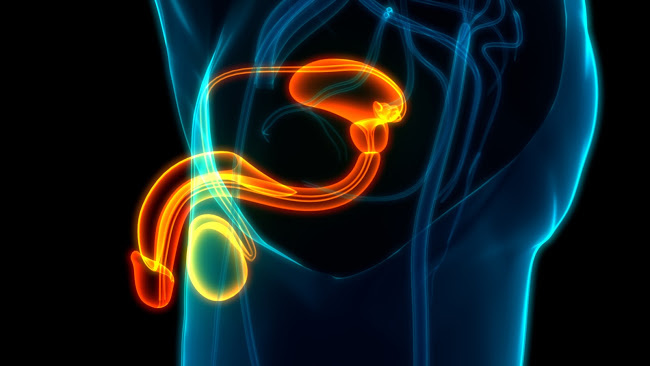
How Might Bladder Cancer Impact Sexual Activity?

Bladder Cancer Awareness Month, observed in May, sheds light on a disease affecting people around the world. While discussions about bladder cancer often focus on its physical manifestations and treatment, it is essential to address its impact on various aspects of life, including sexual activity. Bladder cancer can significantly influence sexual health, but understanding these impacts and seeking appropriate support can help patients navigate this aspect of their journey towards recovery.
Physical Effects
Bladder cancer and its treatments can lead to physical changes that directly affect sexual function. Surgeries such as cystectomy, which involves the removal of part or all of the bladder (a surgery known as radical cystectomy), can disrupt nerve pathways and muscles essential for sexual activity. What’s more, radical cystectomy in men typically includes the removal of the prostate and seminal vesicles, while in women, it involves the removal of the uterus, ovaries, fallopian tubes, and part of the vagina.
For women, the removal of vaginal tissue during surgery can lead to pain or discomfort during sexual stimulation or intercourse. The accompanying nerve damage can also affect arousal and the ability to achieve orgasm.
On the other hand, for men, nerve damage during surgery may affect the ability to have erections, and the removal of the seminal vesicles and prostate means they will no longer ejaculate. While orgasms may still be possible, they will be “dry.”
Urinary diversion is necessary after a cystectomy, as it creates a new way for urine to exit the body since the bladder has been removed. A stoma is a surgically created opening in the abdomen through which urine can pass, and a pouch is attached to the stoma to collect urine.
During intimacy, individuals with a stoma or external pouch may feel self-conscious. To minimize leaks, it is advisable to empty the pouch before engaging in sexual activity. Using a pouch cover, sash, or snug-fitting top can help secure the pouch and keep it out of the way during sex.
Lastly, additional cancer treatments like chemotherapy and radiation therapy may cause fatigue, pain, and hormonal changes, all of which can diminish libido and sexual performance.
Psychological Effects
The psychological toll of a cancer diagnosis cannot be overlooked. Anxiety, depression, and body image concerns are common among cancer patients and survivors, all of which can contribute to sexual dysfunction. Fear of recurrence or the impact of treatment side effects on intimate relationships can also dampen sexual desire and satisfaction. It is just as important to seek support for one’s mental health as it is for physical health.
Communication is Key
Effective communication between patients and their healthcare providers and partners is vital for addressing sexual concerns related to bladder cancer. Patients should feel empowered to discuss their sexual health concerns with their doctors, who can provide information about treatment side effects and ways to manage them. Healthcare providers can also refer patients to specialists such as urologists, oncologists, or sex therapists who can offer tailored support.
Equally important is open communication between sexual partners. Sharing feelings and concerns about changes in sexual function can strengthen the bond between partners and foster intimacy.
Exploring Solutions
While bladder cancer may pose challenges to sexual activity, there are strategies and interventions available to help patients maintain intimacy and sexual satisfaction. These may include:
- Pelvic floor exercises: Strengthening the pelvic floor muscles can improve bladder control and sexual function.
- Medications: Certain medications can address sexual dysfunction related to bladder cancer treatment, such as erectile dysfunction drugs or hormone replacement therapy.
- Sexual aids: Devices such as lubricants, vaginal dilators, or erectile dysfunction aids can enhance sexual comfort and pleasure.
- Counseling or therapy: Mental health professionals, including sex therapists, can help patients and their partners navigate the emotional and psychological aspects of sexual health.
- Support groups: Joining support groups or online communities for bladder cancer patients can provide a sense of solidarity and offer practical tips for managing sexual concerns.
Conclusion
Bladder cancer can have a profound impact on a person’s sexual activity. However, with open communication, support from healthcare providers and partners, and access to appropriate interventions, patients can overcome these challenges and maintain fulfilling intimate relationships.
References:
- American Cancer Society. (2021). Sex and the Adult Male with Cancer. https://www.cancer.org/treatment/treatments-and-side-effects/physical-side-effects/fertility-and-sexual-side-effects/sexuality-for-men-with-cancer.html
- Bladder Cancer Advocacy Network. (n.d.). Facing Bladder Cancer. https://bcan.org/facing-bladder-cancer/
- Mayo Clinic. (n.d.). Bladder removal surgery (cystectomy). Mayo Clinic. Retrieved from https://www.mayoclinic.org/tests-procedures/cystectomy/about/pac-20385108
- National Comprehensive Cancer Network. (2023). NCCN Guidelines for Patients: Bladder Cancer. https://www.nccn.org/patients/guidelines/content/PDF/bladder-patient.pdf






